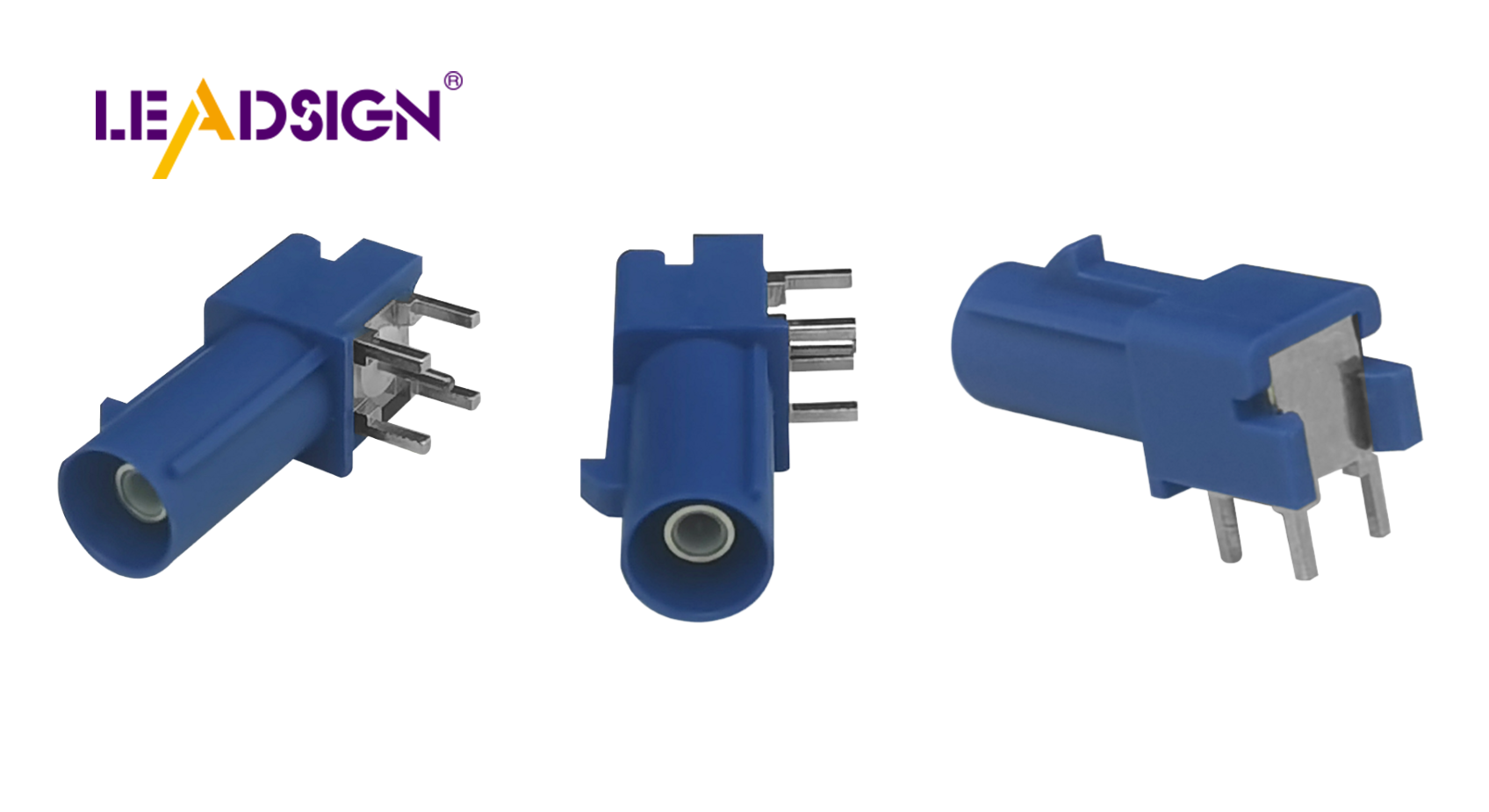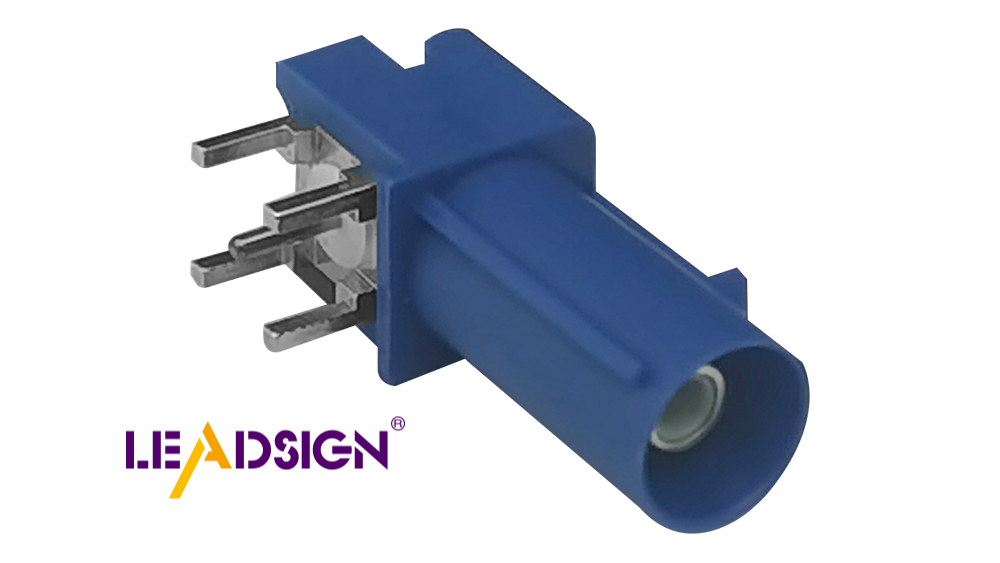Automotive Electrical Connectors Types: A Buying Guide

Automotive electrical connectors are essential for a car's optimal performance. These connectors ensure that systems such as GPS and air conditioning operate efficiently. Imagine your car as a network where components communicate with each other. Without these connectors, your vehicle wouldn't function correctly. This guide will introduce you to various automotive electrical connectors types, helping you select the right ones for your car.
Types of Automotive Electrical Connectors

When you look at automotive electrical connectors, there are many kinds. Each type is made for different jobs. Let's check out some common ones and what makes them special.
FAKRA Connectors
Specific Uses
FAKRA connectors are very important in cars. They are used in telematics, safety, and communication systems. These connectors link GPS, radios, and infotainment systems. They work well even when it's tough outside, so they’re great for cars in extreme places.
Benefits
FAKRA connectors have many good points. They have color-coded covers that make them easy to spot. This helps you connect the right parts together. Their special design stops wrong connections, ensuring a snug fit every time. These connectors meet strict car standards, giving both electrical and mechanical strength. You can rely on them to last long and work well.
DEUTSCH Connectors
Specific Uses
DEUTSCH connectors are known for being strong and reliable. You see them in boats, big trucks, and building machines. They’re perfect for heavy-duty vehicles that need strong links where there's lots of dust or water.
Benefits
DEUTSCH connectors have lots of benefits too. They seal tightly to keep out water and dust, which means they last longer even in hard conditions. They're easy to put together and take apart, making fixing things simple. You can trust DEUTSCH connectors to give solid connections where it’s tough.
Weatherpak Connectors
Specific Uses
Weatherpak connectors are also popular among automotive electrical connectors types. They're found in high-end construction tools and farm gear. They're built to handle outdoor challenges, so they're good for vehicles facing weather changes.
Benefits
Weatherpak connectors offer great advantages too. They resist the environment well, keeping connections safe from water and dirt exposure. Their strong build makes them durable against shaking or bumps. With Weatherpak connectors, you feel sure your connections will stay firm under hard conditions.
By knowing these different automotive electrical connector types, you can choose wisely for your vehicle's needs.
Comparing Automotive Electrical Connectors Types
When picking automotive electrical connectors, it's important to know how they compare. Let's look at some key things to help you choose wisely.
Reliability
You need connectors that won't fail. Being reliable is very important for automotive electrical connectors. Several things can affect this:
Material Quality: Good materials fight heat and wetness, so they last long.
Design Features: Strong locks stop them from coming apart by accident.
Testing Standards: Connectors tested well give you confidence.
For example, Rosenberger FAKRA connectors are known for being dependable. They have color-coded covers for easy spotting and special keys to avoid wrong matches.
Durability
Durability is also key when choosing automotive electrical connectors. You want ones that handle tough conditions:
Environmental Resistance: Pick connectors that keep out water, dust, and extreme heat or cold. DEUTSCH connectors are great here because they seal tightly.
Longevity: Strong connectors mean less replacing, saving time and money.
FAKRA connectors are made to meet hard car industry needs, lasting in rough places.
Fit for Cars
Cars can be hard on connectors. You need ones that can take the ride:
Vibration and Jostling: Cars move a lot. Connectors must stay put even with shaking. Weatherpak connectors handle bumps well, perfect for cars with lots of movement.
Temperature Fluctuations: Some like FAKRA work in wide temperature ranges, from -40 °C to +105 °C, so they're good in different weather.
By knowing these points, you can pick the right automotive electrical connector types for your needs. Whether it's reliability, durability, or fit for cars, each type has its own perks. Think about these when picking connectors for your vehicle.
Technical Details and Features
When picking car electrical connectors, knowing their details helps a lot. Let's look at some important things to think about.
Impedance
Why It Matters
Impedance is key for how well connectors work. It means how much a connector stops electricity flow. For example, FAKRA connectors usually have 50 Ω impedance. This makes sure signals move well without losing much. When choosing connectors, match impedance with your system's needs. This keeps signals clear, especially in high-frequency uses like GPS.
Frequency Range
How It Affects Use
A connector's frequency range shows what signals it can handle. Connectors like FAKRA work from DC to 6 GHz. This lets them support many uses, like radios and telematics. A bigger range means the connector can carry more data, which is important for cars with lots of sensors and systems. Picking the right frequency range helps your car's systems work best.
Temperature Tolerance
For Different Weather
Temperature tolerance is also important for car connectors. Cars face hot summers and cold winters. Connectors like JPC Connectivity ones handle -40°C to +105°C temperatures. This makes sure they work well in all climates. When choosing connectors, think about where your car goes. A wide temperature range means steady performance no matter the weather.
By knowing these details, you choose better car electrical connectors. Whether it's impedance, frequency range, or temperature tolerance, each part helps your car's electric parts work smoothly.
Picking the Right Connector
Choosing the right car connector can seem tricky. But don't worry, it's simpler than it looks. Let's go through it step by step.
What You Need
Matching Connectors to Jobs
First, think about what job the connector will do. Different connectors have different uses. Some are great for engine control, others for music or lights. For things like headlights or engines that need a lot of power, pin connectors are good. They handle power well and keep things working smoothly.
Where Your Car Goes
Checking Environmental Effects
Next, think about where your car usually is. Is it often in wet or dirty places? If yes, you need connectors that can handle these spots. Look for ones with tight seals to block water and dirt. This helps them last longer and work better. The place your car goes can affect how long your connectors last.
How Your Car Moves
Handling Shaking and Bumps
Finally, think about how much your car moves around. Cars shake a lot and this can loosen connectors if they're not made well. Pick connectors that stay tight even when there's lots of shaking. This is important for cars on bumpy roads or off-road trips. A good connector stays connected so everything keeps running fine.
By thinking about these things—what you need, where your car goes, and how it moves—you can pick the best connector for your car. This keeps your car's electric parts working well no matter where you drive.
Guide for Buying Car Electrical Connectors
Picking the right car connectors can be tough. But don't worry, this guide will help you choose wisely.
Finding Good Connectors
To get good connectors, start with picking the right sellers. Buy from trusted places that have quality items. Connector Experts is a big name here and they say it's important to know about these parts. They suggest finding sellers with a good name and lots of choices. This way, you get connectors that fit your needs and last long.
Trusted Sellers
Connector Experts: Known for many choices and top-quality options.
Waytek: Offers many strong wire connectors for different car settings.
NAPA: Great for home mechanics and DIY fans.
Why Material Matters
The stuff connectors are made of is very important. Good materials fight heat, wetness, and other things outside. This means they last longer and work better. When picking connectors, look for ones made from strong stuff. This makes sure they can handle what your car needs.
Lasting Performance
Heat Fighting: Makes sure connectors don't break in hot weather.
Wetness Fighting: Keeps connections safe even when wet.
Strong Build: Means less replacing, saving time and money.
Handling Weather Changes
Car connectors face many weather problems. They need to stand up to water, dust, and temperature changes. Picking connectors that resist these things means they'll work well over time. This is very important for cars in tough places.
Making Them Last
Sealing Well: Find connectors with tight seals to keep out water and dust.
Temperature Handling: Pick ones that can take really hot or cold weather.
Shake Proof: Make sure they stay put even when moving a lot.
By using this guide, you can pick the best car electrical connectors confidently. Remember, good connectors keep your car's systems working well no matter where you drive.
This guide taught you about different automotive electrical connectors like FAKRA, DEUTSCH, and Weatherpak. Each one has special uses and benefits. You also learned how to compare them by reliability, durability, and fit for cars.
Here's a simple checklist to help you choose:
Know What You Need: Match connectors to their jobs.
Think About Conditions: Pick ones that handle your car's usual weather.
Check Strength Needs: Make sure they can take shaking and temperature changes.
By using these steps, you can pick the best connectors for your car.
See Also
Ford Fakra Connectors: A Comprehensive Guide
Understanding HSD Connectors in Automotive Sector
Significance of Modern Vehicles' Fakra Automotive Connectors

